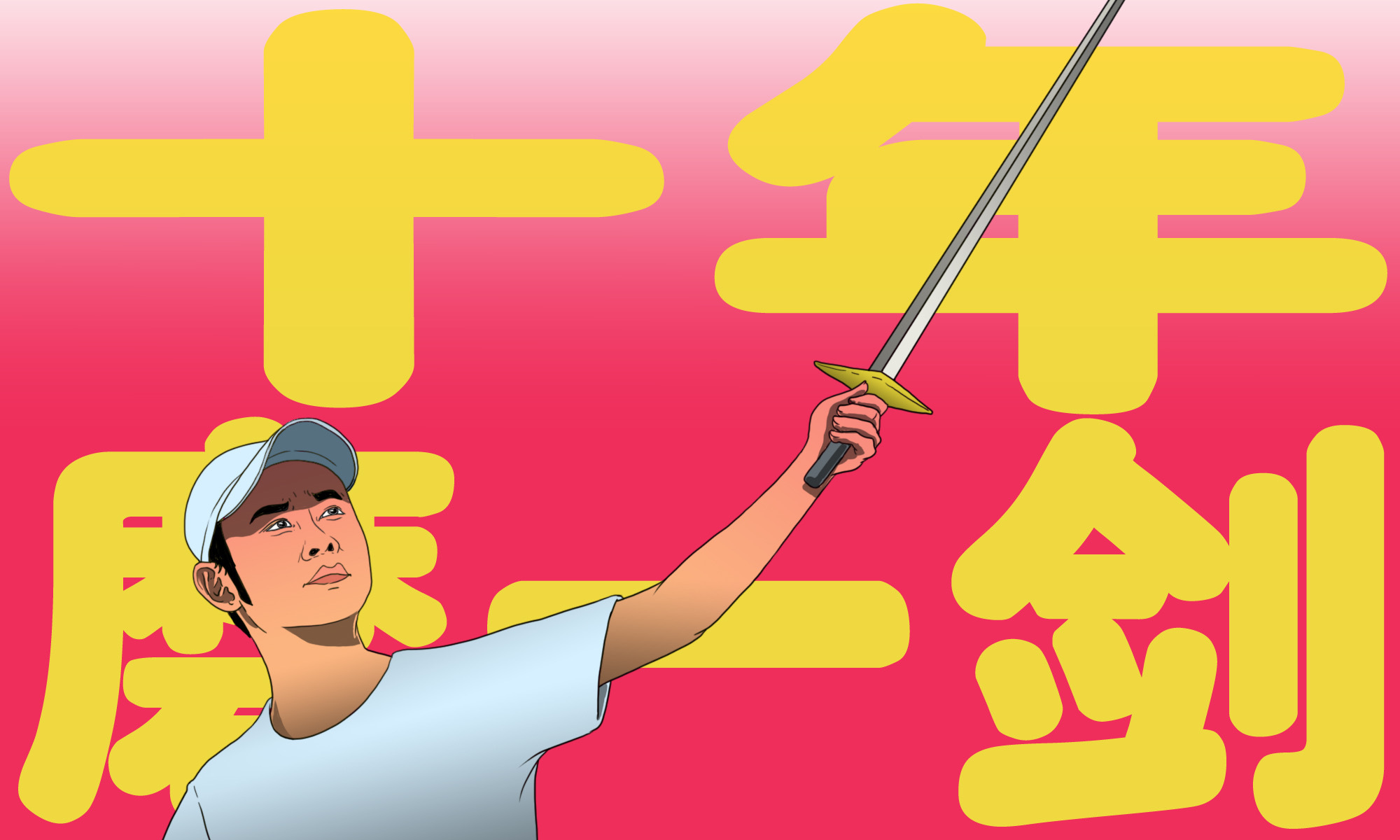‘Ten years sharpening a sword’ — Phrase of the Week
One of China's biggest musicians of the 2000s is back after a 13-year absence. He's been preparing to take his revenge.

Our Phrase of the Week is: Ten years sharpening a sword (十年磨一剑 shínián mó yíjiàn).
The context
Folk singer Dāo Láng 刀郎 has released a new album, The Reverberant Folk Songs (山歌寥哉 shāngē liáozāi). It’s his first release for over a decade, after he originally shot to stardom in 2004 with the album The First Snowfall of 2002 (2002年的第一场雪).
But one song on his new record has caused huge controversy and heated discussions in China: The words of Rakshahai City (罗刹海市 luō chà hǎi shì), released as a single last week, are believed to be a subtle criticism of a number of celebrities in China’s music world.
The title of the song, and the lyrics, are drawn from Strange Tales From a Chinese Studio (聊斋志异 liáozhāi zhìyì), a collection of short stories published in 1766 by Qing-dynasty writer Pú Sōnglín 蒲松林.
In the original short story, Rakshahai City is a world in which everything is upside down: The more human-like or beautiful someone is, the lower they are in society; the uglier and more beast-like they are, the higher and more powerful they become.
The lyrics of the titular song are adapted from the original short story. The controversy arose because some observers believe the selection of words can be interpreted as a veiled criticism of well-known Chinese singer and musical judge Nà Yīng 那英 and a number of other celebrity judges who were also critical of Dao Lang’s “tacky” (土 tǔ) style.
This links back to the 2010 Music Billboard 10-Year Ceremony (2010年音乐风云榜十年盛典 2010 yīnyuè fēngyúnbǎng shínián shèngdiǎn), on which Na Ying was the head judge. When selecting her most influential singer of the decade, Na Ying directly criticized Dao Lang for having no musicality:
His songs are not aesthetically pleasing.
他不具备审美观点。
Tā bújùbèi shěnměi guāndiǎn.
He disappeared from public view shortly after that.
So his reappearance with the release of Rakshahai City and the album The Reverberant Folk Songs has surprised music fans, leading to its immense popularity, which is further intensified with the rumor of the clever criticism of Na Ying and her fellow judges.
Chinese media invoked a well-known phrase to characterize Dao Lang’s return to the spotlight:
After 10 years of sharpening his sword, he has returned for revenge. It’s an emotional release. As soon as this song came out, it immediately hit the top search rankings on social media and became hugely popular.
十年磨一剑,归来终复仇,这样的设定实在太带感太解气,此歌一出,立刻火上了热搜,火出了圈。
Shínián mó yíjiàn, guīlái zhōng fùchóu, zhèyàng de shèdìng shízài tài dàigǎn tài jiěqì, cǐ gē yì chū, lìkè huǒshàngle rèsōu, huǒ chūle quān.
And with that, we have our Phrase of the Week.
What it means
Ten years sharpening a sword is the first line of a four-line poem by Jiǎ Dǎo 贾岛, a Buddhist monk and poet during the Tang dynasty.
The poem, “The Swordsman” (剑客 jiànkè), is his most famous work, known by anyone in China who has a middle school education:
For 10 years I have been polishing this sword;
Its frosty edge has never been put to the test.
Now I am holding it and showing it to you, sir:
Is there anyone suffering from injustice?
十年磨一剑,霜刃未曾试。
今日把示君,谁有不平事?
Shínián mó yíjiàn, shuāngrèn wèi céngshì.
Jīnrì bǎ shì jūn, shéi yǒu bùpíng shì?
In modern Chinese, the phrase Ten years sharpening a sword is a metaphor for years of careful hard work, preparing for something, or mastering a craft.
Dao Lang’s decade-long silence while sharpening his sword has been well spent, creating this immensely successful tune, putting his name back at the top of music charts, and silencing his critics.
This Phrase of the Week was chosen thanks to a recommendation from Geremie R. Barmé.






